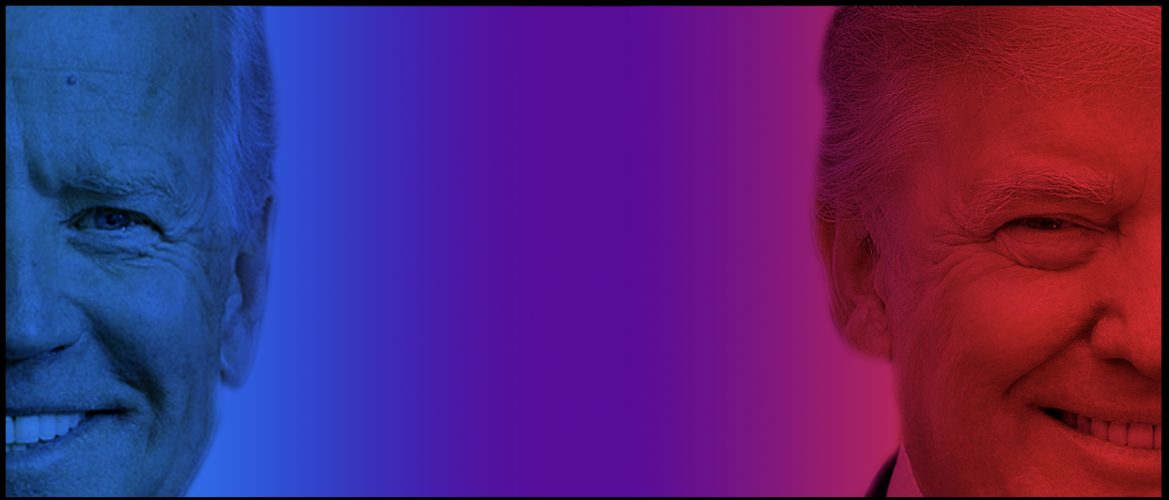What we see
Debate or no debate, the country is divided and people have chosen their camp.
- According to a POLITICO/Morning consult poll, prior to last night’s debate, 86% of voters report they’ve already decided who will get their vote.
- In fact, according to CNN more than 1.2 million Americans voted in advance of the debate, including a majority from competitive states.
There is a lack of empathy for opposing viewpoints and a pronounced unwillingness to engage or listen to the other side.
- A recent Pew Research Center survey found that fewer than a quarter of registered voters say they have more than a few friends who fall into the opposing party’s camp.
The debate did little to bridge this divide, nor did it provide an opportunity for the few remaining undecided voters to make an informed choice, and may have further eroded trust in our political system and government.
- According to interviews conducted by CBS News with likely voters nationwide who watched the debate, majorities from both sides of the aisle found the tone to be negative and felt annoyed after watching.
- Initial reactions from undecided voters, according to reporting by NPR, indicate that these voters remain undecided following the debate and are frustrated by what they saw.
- Whether it was the discussion around a potential coronavirus vaccine or questioning the electoral process itself, the takeaway was certainly to feel less confident in our institutions.
What it means
There’s an opportunity to fill the space traditionally held by political leaders, by seeking to unite Americans and advance faith in our country’s ability to overcome the toughest challenges ahead.
For the most part, voters’ minds are made up and their positions and beliefs stand to only be further galvanized through the rest of the election cycle. In many cases, these beliefs are deeply held. Bridging the gaps in a divided country through understanding and commonality will continue to be a challenge beyond Election Day, no matter who the ultimate winner is.
What corporate leaders should do about it
Corporate leaders don’t need to wait for an outcome of an election to begin thinking about what it means for their brand and corporate reputation. They must take an always on approach to reputation management with an insights-based understanding of their customers, employees, policymakers, interest groups, and the general public’s diverse and divergent viewpoints.
While Americans may be predisposed not to listen to the other side, our corporate leaders should be actively listening. They must make a concerted effort to get beyond group think and listen to a range of perspectives. They should ground their decisions in a research-based understanding of what’s driving sentiment and where the commonalities are that can bring us together.
America’s corporate leaders should invest their time and resources in initiatives that seek to restore trust in our institutions. Whether it’s campaigns to instill confidence in vaccine safety and efficacy or taking a stand to promote awareness and access to voting, now is the time for action. This uncertain time should be viewed as an opportunity to demonstrate leadership, trustworthiness, and competency. Reversing the erosion of trust in institutions both public and private will be critical in bridging the gaps that divide our nation.
At Purple Strategies, where we bring together Red and Blue, we know how to develop a message and activations that engage and inspire a broad spectrum of audiences. Purple is standing by to support our clients as they seek to navigate this complex landscape. Purple provides deep experience helping the world’s best-known companies navigate the world’s toughest challenges. Please reach out to authors Jordan Davis and Lauren Hickey or any member of our Purple team to let us know how we can support you.
About the Authors
Jordan Davis is a 15-year veteran of Capitol Hill and national congressional campaigns, most recently serving as Senior Advisor at the House Energy & Commerce Committee overseeing legislative and communications strategy, and prior to that as Policy Director & Communications Advisor at the National Republican Congressional Committee during the 2014 and 2016 election cycles.
Prior to joining Purple, Lauren Hickey served for five years at the U.S. Department of State, most recently as Lead Advisor for Strategic Communications. Among other responsibilities, she served as the communications point person for oversight issues, including media and congressional inquiries related to former Secretary Clinton.

 Reclaiming Trust When Under Fire
Reclaiming Trust When Under Fire  Reclaiming Trust When Your Products – and Intentions &...
Reclaiming Trust When Your Products – and Intentions &...  Brad Dayspring Joins Purple Strategies as Executive Director
Brad Dayspring Joins Purple Strategies as Executive Director  Celebrating Growth and Leadership at Purple
Celebrating Growth and Leadership at Purple